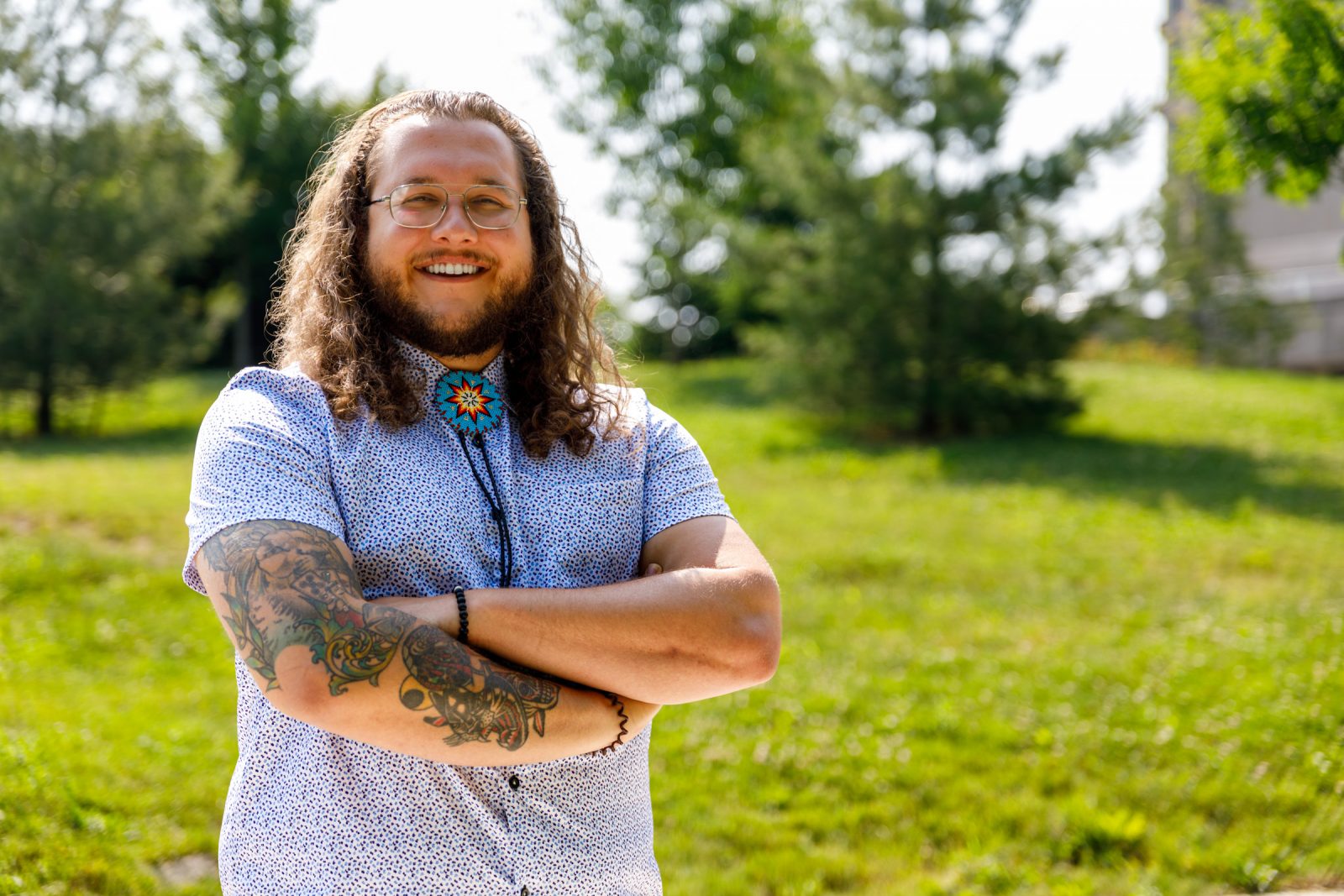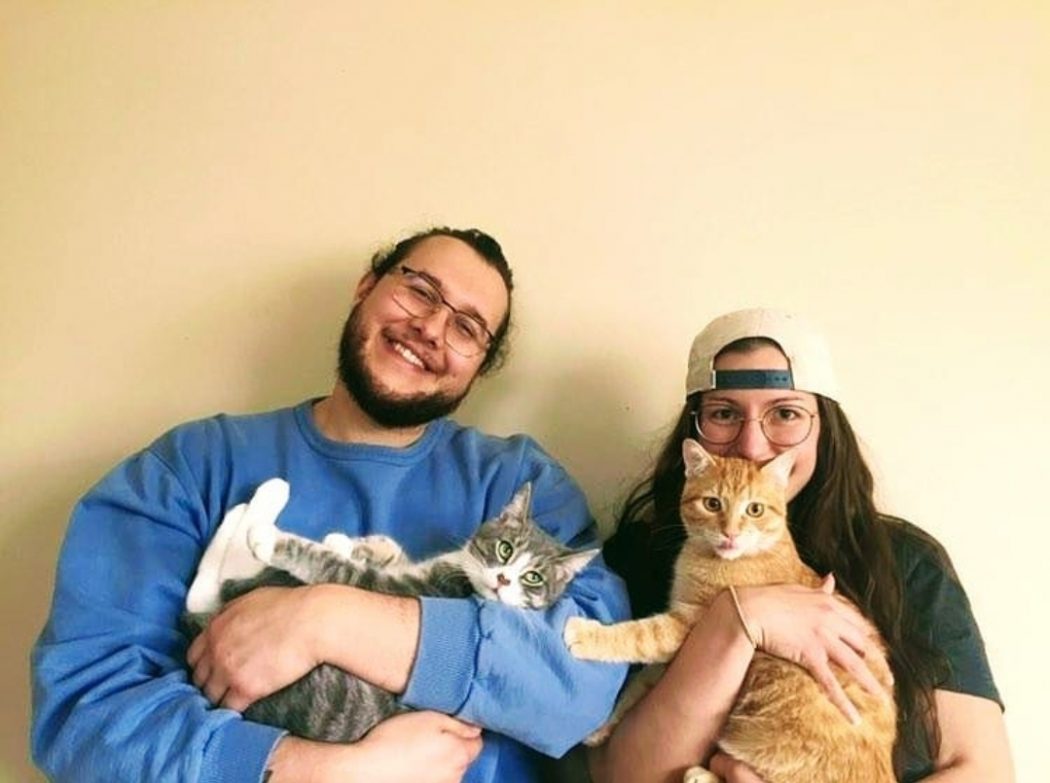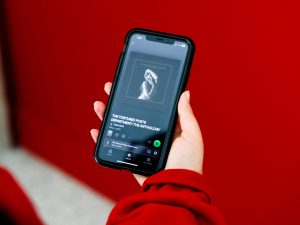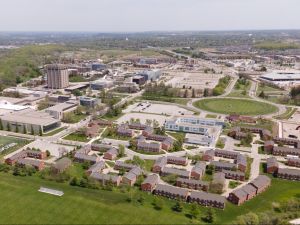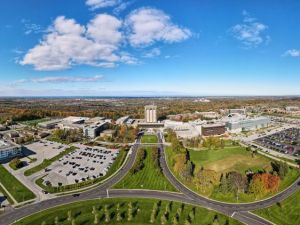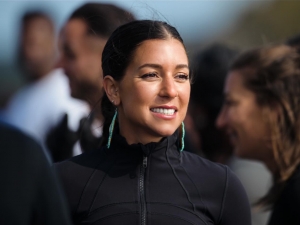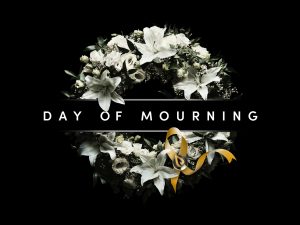Note: The Brock Employee Feature is a Q&A-style series that aims to highlight those who contribute to the University’s positive working environment and make a difference in the campus community. The full series is available on The Brock News. Employees interested in being featured are asked to fill out an online form.
Mac Orlando grew up hearing the same phrase repeated over and over: “learn lots, love more.”
It is one of many important teachings his mum passed down to him to carry on and the foundation of who he is as an educator. This mantra not only anchors the work he does as Brock’s Indigenous Educational Developer, but also reflects how he sees and walks in the world.
Orlando’s role, which reports to the Office of Indigenous Engagement and the Centre for Pedagogical Innovation (CPI), was created in support of Brock’s strategic priorities, which include a focus on decolonization and indigenization of the University.
Share your Brock career story.
On my mum’s side of the family, I am Kanien’keha:ka (Mohawk), descending from Six Nations, and Scottish. On my dad’s side, I am Sicilian.
In August 2020, in the midst of the pandemic, I moved from Thunder Bay to Hamilton to be closer to my family who live across southern Ontario, and to be with my partner as she began a master’s at McMaster University.
I was hired as an Aboriginal Student Assistant and Recruitment Officer within what is now Brock’s Hadiyaˀdagénhahs First Nations, Métis and Inuit Student Centre.
I was in the role for about 18 months while completing my Master of Education through Lakehead University when Brock created my current role.
Working directly with Indigenous students on their journey through post-secondary was an amazing opportunity. While I was sad to leave my student-facing role, I was also excited to work on curriculum and pedagogy at a different level.
Nearing three years at Brock, my hope is the work I do in my current role has as positive an impact on students as my previous position.
What do you like about your role?
So much! The lovely part of my role is that I never have a day that is the same as the last.
One day I may be consulting with a faculty member about decolonizing their syllabus and discussing Indigenous ways of teaching and learning, or thinking of creative ways to assess students’ understandings.
Other days, I may be out in the Niagara community engaging with various Indigenous and non-Indigenous groups to develop a program or course that reflects the perspectives of those with lived experience of the topics we are aiming to teach.
My favourite part of the role is having conversations and collaborating with people who are eager to reach students in a different way and are open to bringing different ways of thinking, knowing, being and doing into their work.
What’s the most rewarding part of your job?
The best part of my job is being able to advocate for the knowledge bases and approaches that I am passionate about and believe in.
Every day I come to work, I know I can bring my whole self, and that I have the support of my colleagues and leadership.
As I strive to continue to bring in voices that have often not been included at our tables, I speak my truth — from the heart — and sometimes that can be challenging to hear when it is different from another’s beliefs or understanding.
I approach all conversations as an opportunity to develop the space ‘in between us’ which helps the University reflect more of the needs and perspectives of the community it is a part of.
What is something most people don’t know about you?
I am a very proud cat dad. I have two precious boys, Pumpkin and Kona, who will almost certainly pop up to say ‘hello’ during Teams meetings. Sorry folks, but they are my favourite coworkers and one of the most joyous parts of my life.
Do you have any other jobs or side projects?
Alongside this role, I am a sessional instructor within the Faculty of Education, where I teach the ‘Indigenous Education in Secondary Schools’ course to teacher candidates.
For more than two years, I have also been working with my mum on the documentary she created, Nature of Healing. It is about seven Indian Residential School survivors who attended the Mohawk Institute — frequently referred to as The Mush Hole — their experiences and their healing journeys.
The work I did on the film is varied, but included making parts of the soundtrack, supporting survivors and being an academic consultant, alongside Faculty of Education Assistant Professor Stanley (Bobby) Henry.
This film journey has been healing for my mum and I as we grew to understand more of the experience and impact that residential schools had on our family. My great-great grandmother attended the Mohawk Institute in the early 1900s.
I am in constant awe of the resilience, strength and love that the survivors have after the horrendous experiences they had in the early years of their life.
What do you do for self-care to maintain positive mental health?
Overall, laughter is my best medicine. I love to hang out with my friends and family, listen to music, go camping and play video games. I have an amazing partner, Mandy, and anything we get to do together is a blast — even assembling IKEA furniture.
I also remember my mum’s advice: “learn lots, love more.” At the core, I think it encourages us to continue to grow while the most important thing we can do as human beings is to show love to each other, especially the young ones, and ourselves. So simple, yet so powerful!
